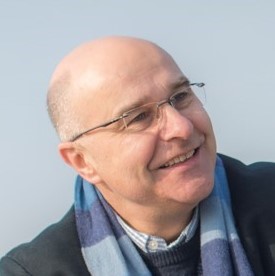Series 3, Episode 1 of the Let’s Go Further podcast
Adult education is essential to the workings of democracy, should be accessible to everyone and should be shaped in collaboration with those who will use it, according to John Holford, Robert Peers Professor of Adult Education Emeritus at the University of Nottingham, and Joint Secretary to the Centenary Commission on Adult Education.
Speaking on episode one of the new series of the Let’s Go Further podcast, Professor Holford said:
“It {adult education} is not only about individual progress, and individuals getting better qualifications and that sort of thing. It’s also about communities working together, strengthening themselves, discussing problems, dealing with internal debates and disputes and so on, and doing that in a civilised and thoughtful and reflective way.
“If you don’t have the grassroots institutions in a democratic society, which enable dialogue to take place in a civilised way between different sections of the community, at low levels, as well as high levels, then you have a community or a democracy rather, which responds to enormous prejudice and …. the rubbish that you get through …the mass movements of populism and so on.”
In conversation with Let’s Go Further presenter, Joe McLoughlin, Professor Holford also addresses the lack of access to adult education.
“One of the weaknesses of adult education in this country…is that it goes massively more to people who are well educated. The people who have degrees or A Levels take part much more in adult education than the people who have not done well at school. And that of course, translates into social class divisions in participation in adult education. I’d like it to be available for people on a lifelong basis.”
{Adult education} is not only about individual progress...It's also about communities working together, strengthening themselves, discussing problems.
In this, the first episode of series three of the Let’s Go Further podcast, Professor Holford also discusses how adult learning is heavily directed by the government of the day and appears disproportionately driven by economic forces, as opposed to taking a more holistic view of improving one’s life.
“…they {policymakers} seem to be driven by this view that the only thing that really matters in adult learning is that the economy should become more efficient…That implies that the whole of the education and skills system – certainly the post compulsory education and skills system – has to be directed at making the workplace more efficient and effective. And that has led to a great narrowing of the nature of adult education and to a diminution of the richness of education in the community.
“The main thing I would argue for is for government, trying to re-establish partnership working with different organisations in society, on the basis of equality…If you’re going to get a proper functioning adult education system, you have to draw adult people into shaping that system, and not just tell them what to do.”
Professor Holford also makes that point that funding of adult education is an issue and calls for a recalibration of what we spend on children and adults.
One of the weaknesses of adult education in this country…. is that it goes massively more to people who are well educated.
Episode one of the third series of Let’s Go Further will be published on Tuesday 3 October.
The third series of Let’s Go Further is focusing on adult education and is asking whether, as a nation, we are still committed to the century-old vision of adult education as being both universal and lifelong.
Let’s Go Further is a podcast that aims to challenge the way we think about skills and education. It was first launched in the autumn of 2022 with a series focused on social mobility. The second series was published in the spring of 2023 and looked at issues around equity, diversity and inclusion. To date, the podcast has had approximately 2,000 downloads.
Listen to the Let’s Go Further back catalogue here.
Let’s Go Further is produced by the Skills and Education Group in collaboration with Research Podcasts and is available wherever you receive your podcasts, including YouTube. You can follow the Skills and Education Group on LinkedIn, Twitter and via their website.
New episodes of the podcast will be published on alternate Tuesdays throughout October, November and into December.
For all media enquiries please contact Catherine McDonald at Popping Orange Communications.
07515116547
Equity, Diversity and Inclusion (EDI) Network
9 November 2023
Robins Wood House
Robins Wood Road
Aspley
Nottingham
NG8 3NH






